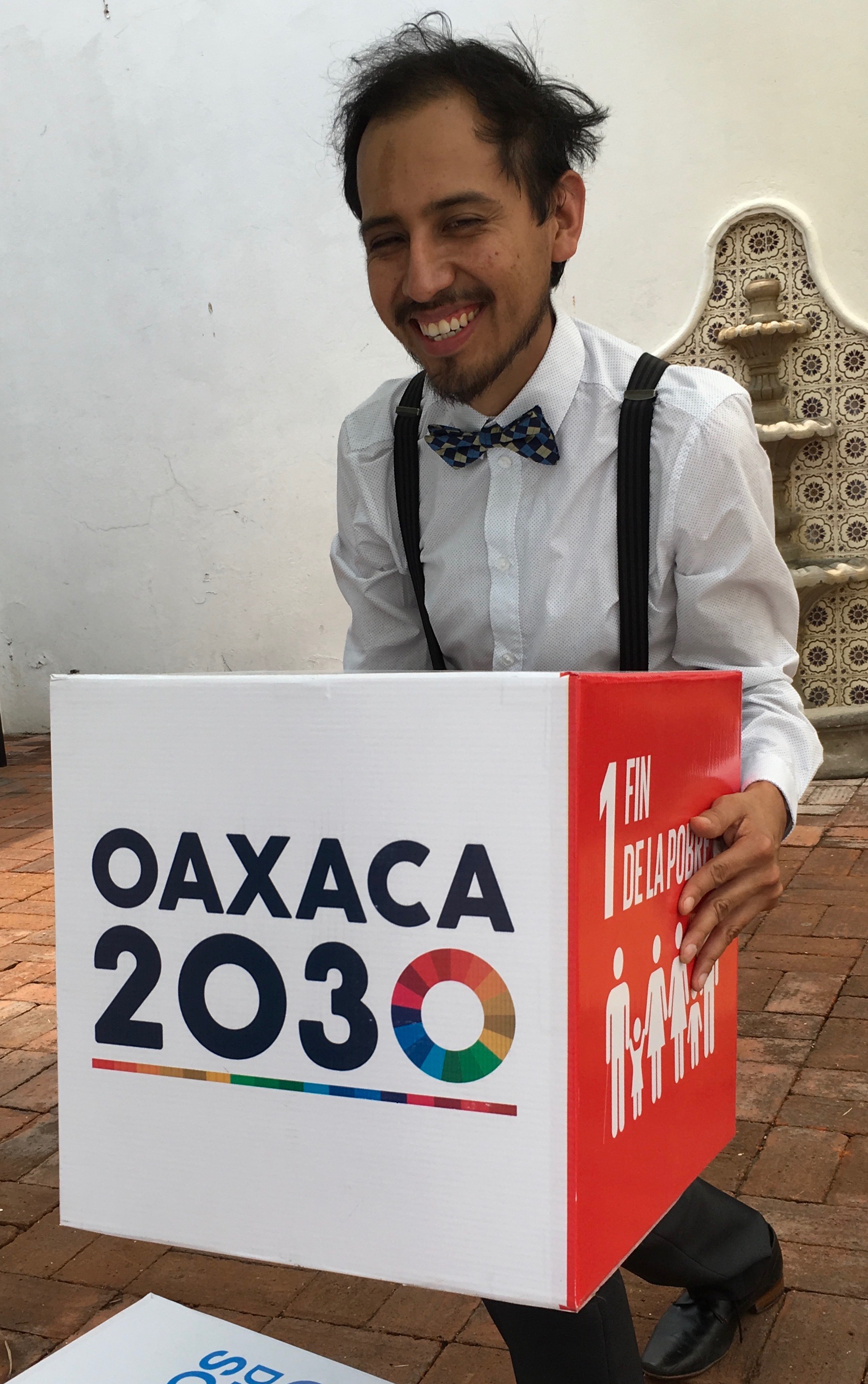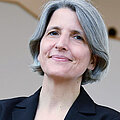
Greater sustainability with voluntary national reports
What do you think of when you hear about the city of Oaxaca in Mexico? For me, it’s the memory of a successful meeting with around 100 people from 30 countries who are committed to sustainable development.

It was the sixth Partner for Review (P4R) network meeting, which took place there from 22 to 23 May 2019, which was preceded by an excursion on 21 May 2019 for exchange and dialogue. These meetings are organised by the Deutsche Gesellschaft für Internationale Zusammenarbeit (GIZ) GmbH to support the process of preparing voluntary national reports (VNRs) on the achievement of the sustainability goals of the 2030 Agenda.
An instrument with impact
Every year, more and more countries produce such a report – in 2019, 47 countries will produce one. Germany provided the first report in 2016, and their second is scheduled for 2021. The reports will be presented at the United Nations High-Level Political Forum on Sustainable Development in New York, and are now an effective instrument for advancing the implementation of the sustainability goals. The P4R network meetings serve to support, in particular, a solid process for reviewing content in the course of preparing the reports, and to give the various actors the opportunity to discuss how they can best participate.
During the excursion day, experts from Mexico presented how they process these reports at the various levels of government, and how they organise data collection. Another topic was the multi-actor engagement required by the 2030 Agenda. In Mexico, the many different indigenous peoples, with their different languages, have to be taken into account. Considering that communicating sustainability goals is often a difficult task in a country with only one language, one can only imagine how time-consuming the process of involving indigenous peoples in Mexico is.
“It’s not about patience. It’s about passion.”
When asked how to reconcile the patience required with the urgency of the sustainability goals, Juan Carlos Villegas Cuevas, Director of Hub Oaxaca, simply replied: “It’s not about patience. It’s about passion. We have to make it. We can build another world.” Another important element was addressed by Eve de la Mothe Karoubi, Senior Manager for the Sustainable Development Solutions Network (SDSN). During the dialogue with all participants, she called on them not to forget the transformative ethos of the sustainability goals: “Adapting existing plans to the sustainability goals is not good enough. We need a radical transformation in order to achieve the sustainability goals”.
The network meeting contained numerous panel discussions and thematic sessions. For participants from the field of philanthropy, a discussion on the role of foundations in the compilation of VNRs was an important part of the programme. This also dealt with the special features of foundations in comparison to other actors, and the ways in which foundations can potentially contribute to sustainability goals and country reports. It gave information on, for example:
- their projects and the grants they provide
- the investment of foundation assets in sustainable investment opportunities
- the success of the implementation of sustainability goals in their own foundation management
- monitoring the achievement of the sustainability goals by governments at national and sub-national levels
- compiling so-called spotlight or alternative reports
- advocating for the important role of foundations in implementing sustainability through advocacy and campaigns
- supporting communication on sustainability and VNRs to citizens (in particular through community foundations)
- supporting other civil society actors in expressing their views on the country reports
So far, the impact of foundations has hardly been taken into account in the respective VNRs, and foundations are rarely included in the review process when preparing the reports; when they are, they are rather marginal. We want to change that. The participation of foundation representatives in the past two P4R network meetings and in the preparatory conference for the United Nation’s High-Level Political Forum on Sustainable Development held in Berlin in June were a first step in this direction.
If you are interested in what happens next and would like to contribute yourself, please contact us!

EZ-Scout Dr. Annette Kleinbrod
All articles of EZ-Scout Dr. Annette KleinbrodRelated Content
The reform of foundation law is coming
The bill to standardize foundation law will enter into force on 1 July 2023. The legislator has addressed important demands made by the Association of German Foundations and by academia, paving the way for improvements for small and large foundations alike.
Reflecting on 25 years of progress for gender equality – and how far there is to go
Twenty-five years ago, the World Conference on Women in Beijing adopted a Platform for Action that transformed national and international policies almost all over the world, recognizing that women’s rights are human rights. It impacted not millions, but billions of people.
“The SDGs are a powerful common language”
Benjamin Bellegy, Executive Director at the Worldwide Initiatives for Grantmaker Support (WINGS), on his new plans for the global SDG Philanthropy Platform (SDGPP).

